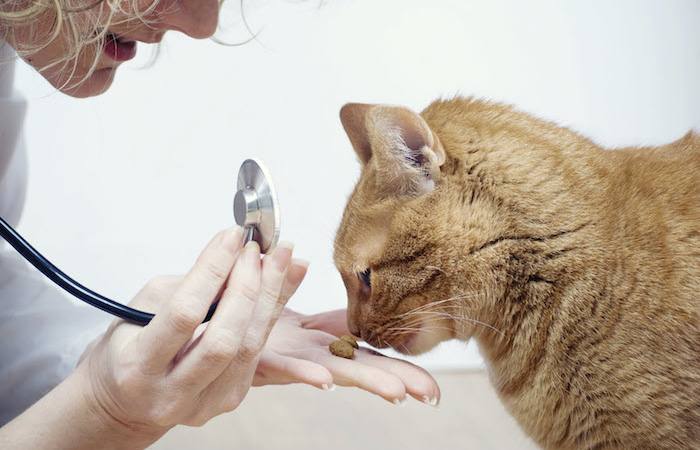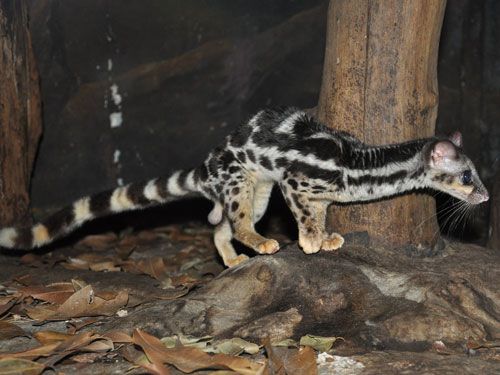Why is leukemia virus dangerous?
In fact, this virus is dangerous because it will eventually cause the cat to:
Leukemia or leukocyte cancer in a cat.
Cancer of the lymph nodes, which is a cancer of many internal organs, but begins in the lymph nodes .. Kalods and often affects any tissue such as kidneys, spinal cord, brain and blood.
Several problems such as anemia in addition to abortions and in the advanced stages of arthritis and weakened immunity, which makes the cat exposed to a lot of ordinary diseases, which are now serious and deadly because of the lack of immune system.
The main means of transmission of the virus is through cat fights, because of the presence of large quantities of the virus in the saliva of cats, and supernatural wounds associated with quarreling to inject the virus in other cats, and there are small amounts of the virus in the urine and feces, and other methods less contributing to Infections include sneezing, sharing eating and drinking dishes, cleaning cats together, and transmitting infections from mother to baby before birth.
How the virus is transmitted
The most likely transmission of the virus is through quarreling with infected cats so that the virus is transmitted either through the saliva of the infected cat during biting or scratching the skin, which causes the injection of the virus in the cat .. Also there is a small amount of these viruses in the urine and feces, which is the least methods of transport, but contribute and have Their role in injuries.
Also be aware of the participation of dishes eating and drinking or direct mixing, especially between the mother and young in case of illness. It is always advised to periodically check for leukemia.
What is leukemia test:
This is a test for detecting a cat that carries the virus. Three tests are used to determine the basic component of the virus that causes the disease, either through blood, stool, saliva or tears:
Elissa test, which is a blood test and detects the stage of the disease in the body.
The IFA test, which is confirmed to be a drop of blood, is positive if leukemia develops into a late stage. If a positive result is found, the stage is late and difficult to treat. If the result is negative, the immune system is in the process of getting rid of the disease.
The second test is a drop of saliva or tears and be positive in case of late infection, but if it is negative, it is at an early stage and can avoid symptoms and effects.
What can happen when a cat is infected with the virus?
This depends on a lot of data including:
The amount of the virus
The power of the virus
Age of cat (younger is more likely to be infected)
There are also four possibilities:
Resistance to the virus: Here we find that the immunity of the cat is strong or that the virus is weak and the cat is able to resist the virus and may show symptoms for ten days before getting rid of the virus permanently and be fever, vomiting, diarrhea and swelling in the neck.
Infection: Here the cat is infected and his body can not resist the disease and unfortunately will carry this disease with him the rest of his life .. It can not be cured and risk of death with any simple disease .. Therefore, we always recommend vaccination and vaccination of the cat with antibiotics.
Latent infection: In this case the cat is infected with the virus does not turn its cells into cancer cells as usual .. But the virus pumps its DNA DNAA in the cells of the cat and continue to convert its cells may continue in the cat’s life normally for up to three years and then turn his body cells Into carcinogenic cells or remain intact but do not perform their vital functions fully.
Pregnant and host of the virus: Here the cat is not affected by the virus completely, but it is pregnant and infect the rest of the cats near him or who quarrel with them. There are many symptoms on the health of the cat later .. There is no cure guaranteed, but as always advise the vaccine may protect your cat in the future from the infection of these lesions.
Should I sterilize the house when my cat is injured?
For 20 years, scientists have not been able to find a leukemia infection that has spread from a cat to a human, so there is no danger to the breeder, but if there are other cats at home prefer sterilization normal, not intensive, as this virus does not live outside the body of the cat more than two hours.
How to protect my cats from leukemia:
There is a vaccine dedicated to this lesion at the veterinarian, but does not guarantee that cats do not get the disease, but we can be assured that the rate of infection will be much lower than cats that have not been vaccinated.








